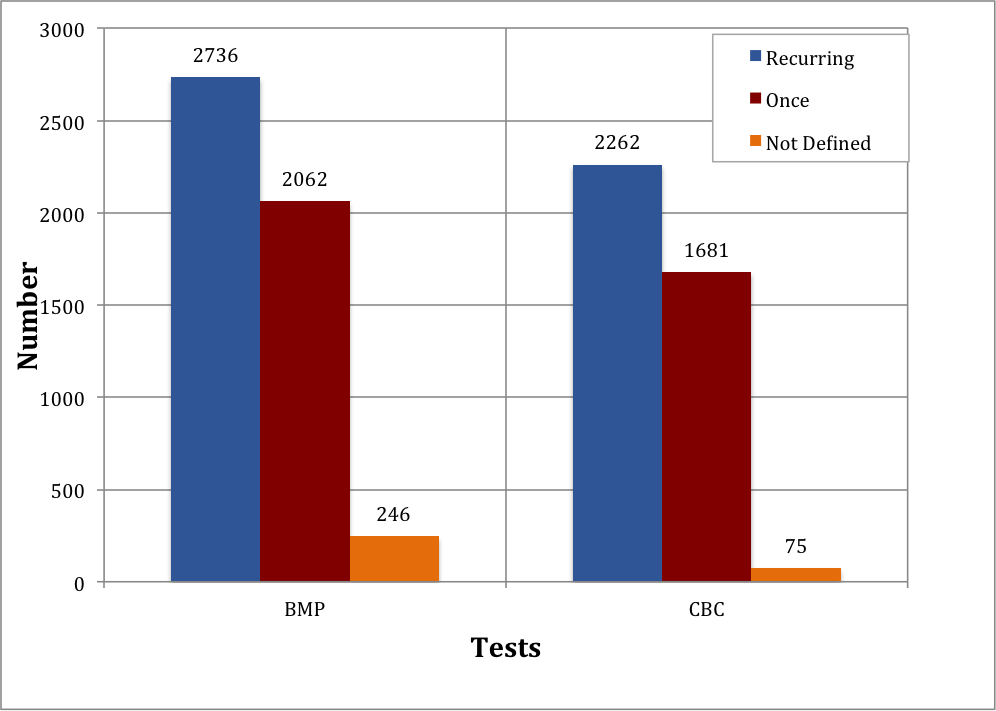Background: Healthcare delivery has become more expensive, with a portion of the elevated cost due to increased utilization of laboratory studies. The Choosing Wisely campaign is an initiative of the American Board of Internal Medicine Foundation focused on preventing wasteful care. Accordingly, the Critical Care Societies Collaborative developed an evidence-based list describing overutilization practices. This includes, “Don’t order diagnostic tests at regular intervals (such as everyday), but rather in response to specific clinical questions. It is encouraged to order tests when it will affect management, with the assumption that routinely ordering of tests will increase health care costs and do not benefit patients”. To better understand utilization in our PICU, we evaluated the proportion of diagnostic laboratory tests that were ordered at regularly scheduled intervals (i.e. every 4 hours, every 6 hours, every 12 hours, or every day) versus a one-time order.
Methods: We performed a retrospective chart review for all patients admitted to the PICU from January 1 through December 31, 2014. Patients of all ages were included. We excluded patients admitted to the PICU already under a laboratory protocol (e.g. DKA patients, post-transplant patients, CRRT patients, ECMO patients), as they have pre-defined laboratory surveillance schedules that are not under the discretion of the medical team. In this pilot phase of the study, we elected to evaluate ordering practices for complete blood counts (CBCs) and basic metabolic panels (BMPs) as these are among the tests that are most frequently used in critically ill patients.
Data collected: Patient number, hospital admission and discharge date and time, PICU admission and discharge date and time, order date and time, specimen collection date and time, authorizing provider, provider specialty, order class (lab draw, clinician draw), order priority (stat, routine), ordering interval.
Results: There were a total of 4,018 CBCs ordered for 772 patients and 5,044 BMPs ordered for 873 patients. CBCs and BMPs were most often ordered with a scheduled, recurring frequency (56.3% and 54.2%) versus as a single occurrence. The order frequency was not defined for 1.9% (n=75) and 4.9% (n=246) of CBCs and BMPs, respectively.
Conclusions: More than half of CBCs and BMPs ordered in our PICU, for patients not on a defined care protocol are ordered on a recurring basis. It is not clear that these ordering practices are in response to specific patient care needs. Efforts are needed to further investigate these trends and to likely reduce the number of laboratory tests ordered on a regularly scheduled frequency at our institution.
